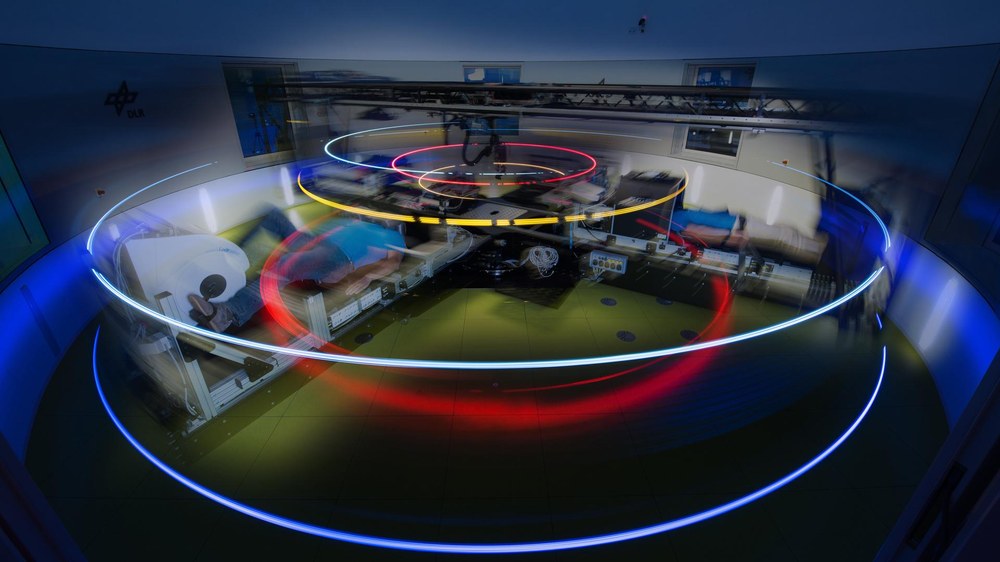DLR Short-Arm Centrifuge



The DLR Short-Arm Centrifuge, Module 1 at the :envihab research facility of the German Aerospace Center (Deutsches Zentrum für Luft- und Raumfahrt; DLR) Institute of Aerospace Medicine in Cologne, is a special unit and the only one of its kind in the world, offering enhanced possibilities for researching the effects of altered gravity, especially as a countermeasure to the health risks that occur in microgravity conditions.
What makes this DLR facility special is the possibility of investigating the effects of different gravity stimuli using variable radii, combined with the option of conducting training using the centrifuge itself. The Short-Arm Centrifuge was designed and constructed to meet the requirements of human physiologists. It allows up to four test subjects to be examined at the same time.
Training against the effects of microgravity
Human centrifuges are used to research human physiological processes under altered environmental conditions (in this case, artificial gravity) and also to develop training measures to counteract the risks to health that can occur in microgravity conditions (e.g. loss of bone and muscle mass, cardiovascular weakness, balance disorders, an impaired immune system, etc.). Due to its features, the Short-Arm Centrifuge is a particularly versatile device for conducting effective training measures.
The training equipment includes a bicycle ergometer, a sledge and a vibration platform. Other special features include a remote-controlled, robot-guided ultrasound examination system for cardiac and vascular analysis, recording of motion dynamics using a motion capture system, and the option of simultaneous centrifugation of four test subjects, with individual monitoring. The range of possibilities now extends to cellular and molecular biological studies, as microscopes and flight hardware with biological samples can be adapted to the centrifuge.
This Short-Arm Centrifuge can be used to study the effects of artificial gravity combined with physical training and its impact on the human body, as well as improving physical performance via various training and test methods. This results in a variety of applications in terms of measures to counter health problems on Earth, such as the consequences of prolonged bed-rest. The possibilities afforded by the DLR's Short-Arm Centrifuge could, for instance, help to clarify mechanisms of action for treating osteoporosis, muscular atrophy or cardiovascular diseases.
